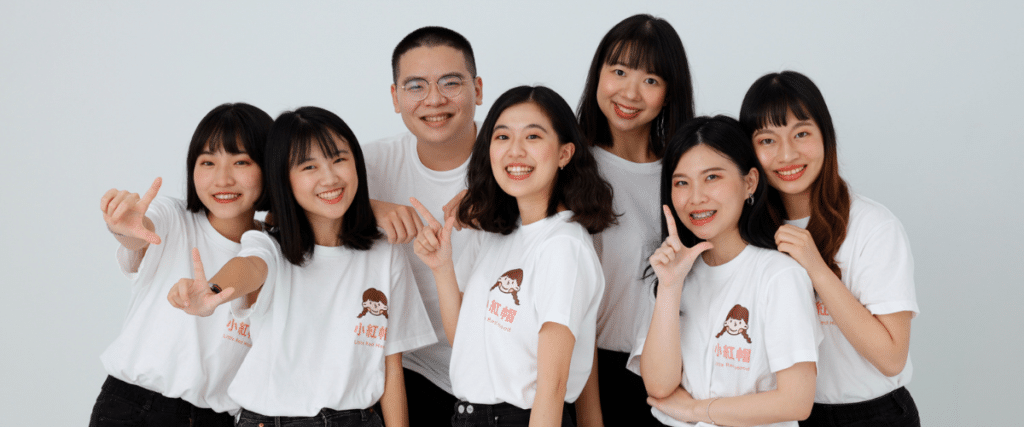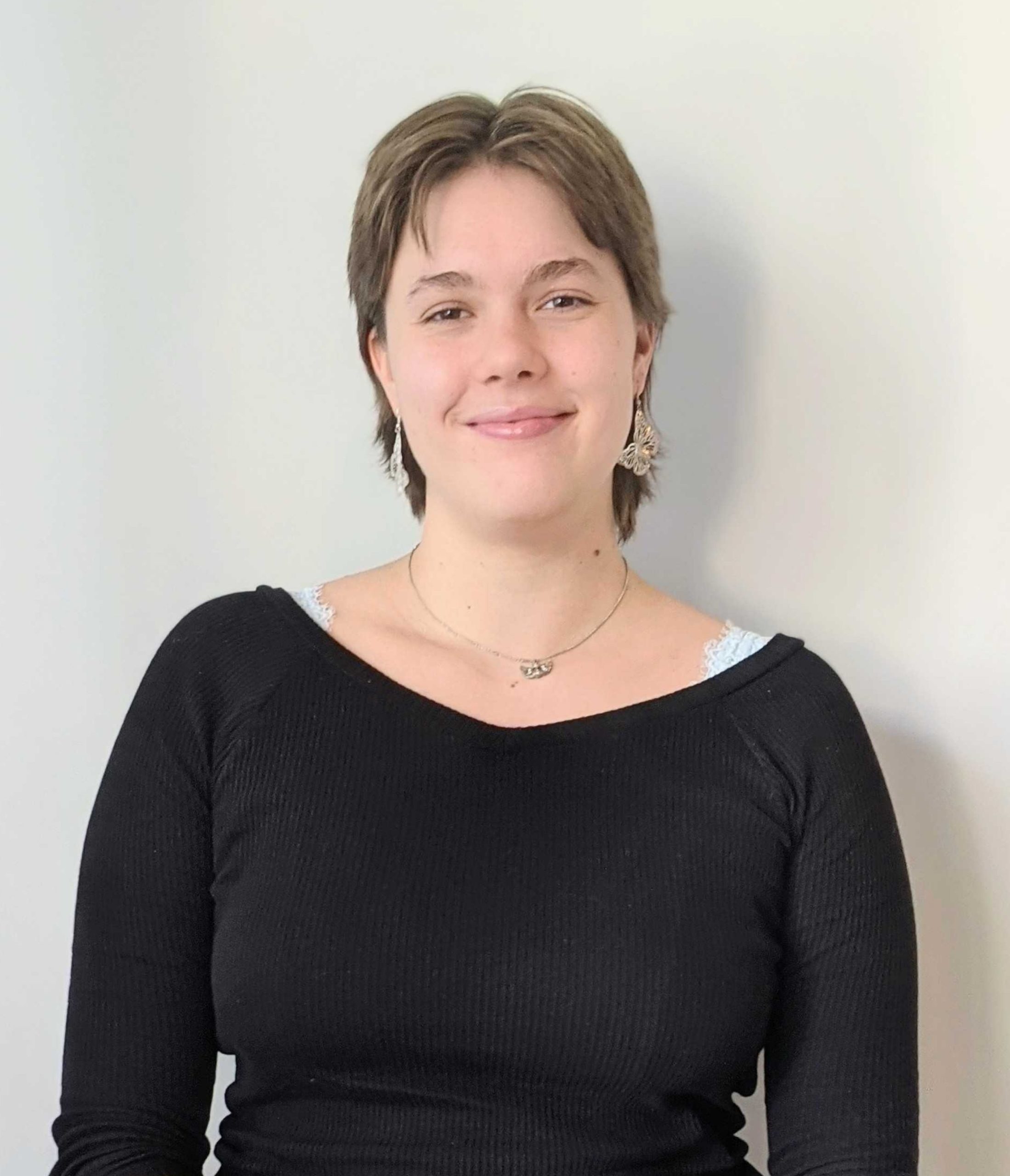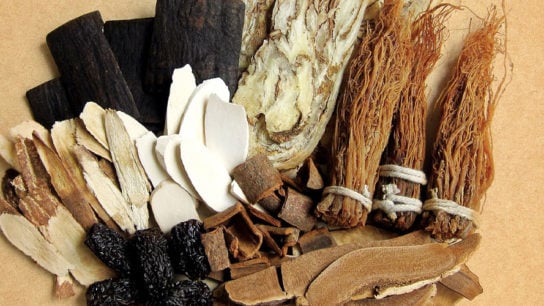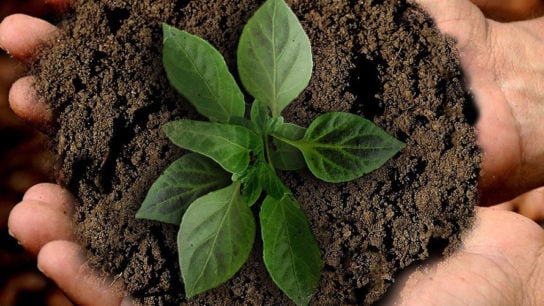Vivi Lin is the founder and CEO of With Red, the first nonprofit organisation in Taiwan to tackle period poverty and eliminate period stigma.
Vivi Lin is the founder and CEO of With Red, the first nonprofit organisation to tackle period poverty and menstrual inequity in Taiwan. Vivi was inspired to combat the issue after noticing the stigma around periods when growing up and realising the detrimental effects of period poverty whilst working as a volunteer during the refugee crisis in the Netherlands.
Now, Vivi has built something truly amazing, winning her organisation a Diana Legacy Award for her work advocating for and educating on menstrual equality. Hive Life spoke with Vivi about period poverty, the work she does at With Red to solve this, and how she plans to enact change for a brighter future.
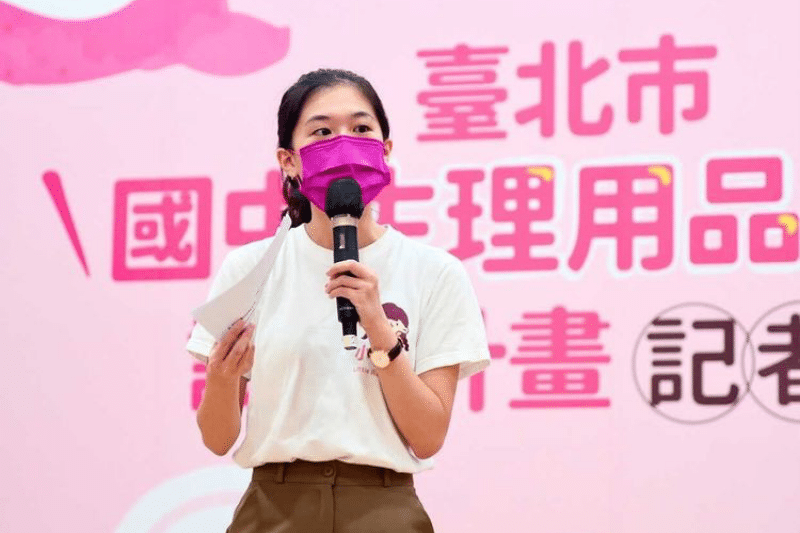
Can you introduce us to With Red?
With Red is the first nonprofit organisation here in Taiwan to tackle period poverty to eliminate period stigma, and try to promote Taiwan’s period equity. What we believe is that everyone has the right to live freely regardless of gender identity, race, or any kind of difference.
When did you realise that there was a need for increased menstrual equality in Taiwan?
I first jumped into the field of menstruation when I was around 11 to 13, when I got my first period. That was when I first noticed that period stigma actually exists. I tried to hide it, and when my mum realised, she tried to talk to me about it, but she wouldn’t mention the word “period.”
That’s when I realised there was a problem in the community and society worldwide. When I tried to talk to my peers and teachers, no one would discuss it, despite it being a natural biological process. I started to realise how little people know about periods.That’s when I started bringing up these issues at my school. I have been writing since I was seven and at that time I started writing a lot about periods. I included periods as a topic in a lot of speeches I was delivering. That’s the moment I started becoming a menstrual equity activist.
But the moment I noticed the problem of period poverty was when I started my career with nonprofit organisations in the Netherlands. I studied there when I was 18. I was actually doing support work for the refugee crisis in Europe. That’s when I realised that there was another problem related to periods, namely, period poverty. I saw that it wasn’t just European refugees suffering from this, but communities all over the world. That’s how period poverty became the core issue that we’re trying to tackle.
How do you support women who do not have access to menstrual products?
We have a long-term support service scheme, providing regular personalised monthly sanitary product packs. Everybody needs different kinds of products and everyone has different preferences, so we try to make sure that everybody gets what they need every month.
It’s a long-term service so that we can support teenagers that are suffering from period poverty until they’re 18. We also offer period education materials and courses to accompany this service. In addition, we also do regular checkups with all the beneficiaries we are currently supporting.
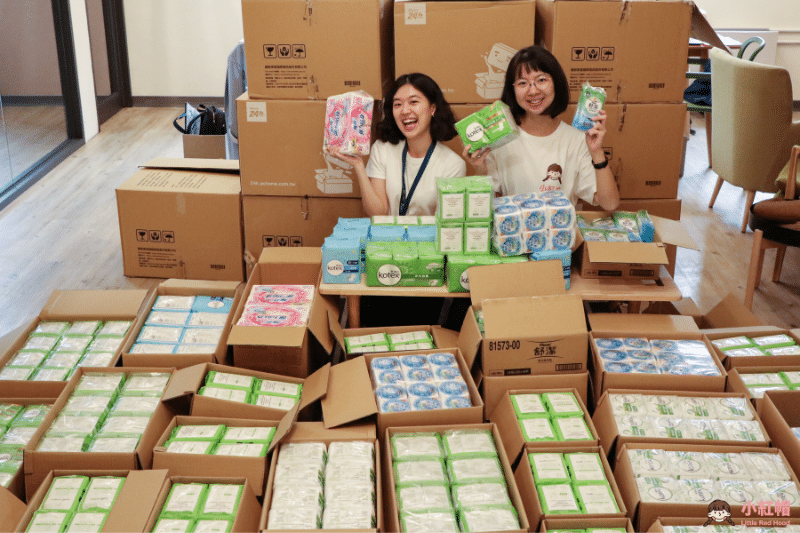
How would you describe period poverty as it applies to Taiwan?
Period poverty is a global issue. It’s not unique to Taiwan, but as long as there is poverty, there are people suffering from period poverty. And as long as period stigma exists, period poverty will be an unspoken issue, meaning menstruators who are suffering from period poverty can only deal with it individually. They cannot speak it out loud or tell people that they need more support.
Period poverty exists on a spectrum. There are extreme cases in some parts of the world. We see people that cannot afford any sanitary products and have to use substitutions, like leaves. This isn’t very common in Taiwan, but what we do see is having one pack of pads in a house shared between multiple people. A pack has 10 pads to last the month, and sharing it causes constant anxiety.
How big of a role does period poverty play in gender inequality, or vice versa?
Period poverty is interconnected with gender inequality. The larger issue surrounds diversity and inclusion. In terms of gender equality, we hope that promoting period equity will help eliminate discrimination against menstruators, and end discrimination in the law and working environments.
There’s more to it though – it’s a global health issue. In Taiwan we talk about CP value – we want something low investment and high payback. Period poverty is definitely an issue that we don’t need as much money to solve but with high payback.
What does outreach and education look like in With Red?
Firstly, we have social support services. The second would be education in and out of schools. The people we encounter are anywhere from 8 to 80. We create educational content and teaching schemes for teachers to implement in their classrooms. We also publish books and train teachers, social workers, policy makers, and entrepreneurs, because if they can implement these ways of thinking into their working environment, we can create a huge change.
We also do direct teaching. We have full semester courses in universities that centre around period related issues. Over 90 schools have cooperated with us in our teaching schemes.
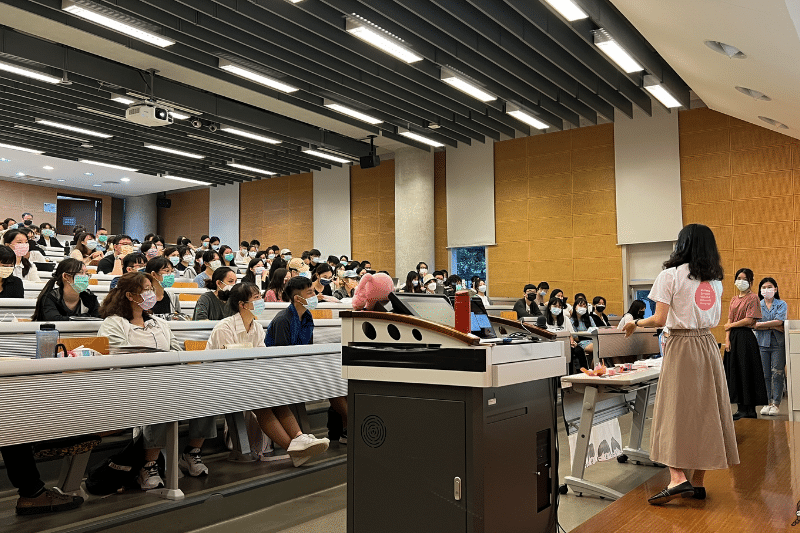
What is the most integral part of your operations? What would you say is key?
I think the most important part is diversity. Not just the diversity of the team, but also listening to different opinions and ways of thinking, and communicating in our outreach operation. Sympathy is also something that we try to promote through period education. A lot of discrimination and misunderstanding can happen without sympathy.
How important is it to get men or boys to participate in the campaign?
It’s very important. We only have one event in which only females can participate in and that’s a project for grandmas. The reason we did that is because a lot of grandmas told us they are not comfortable having male participants in the same group. Apart from that, all events are inclusive. We also push for schools to make period education gender inclusive.
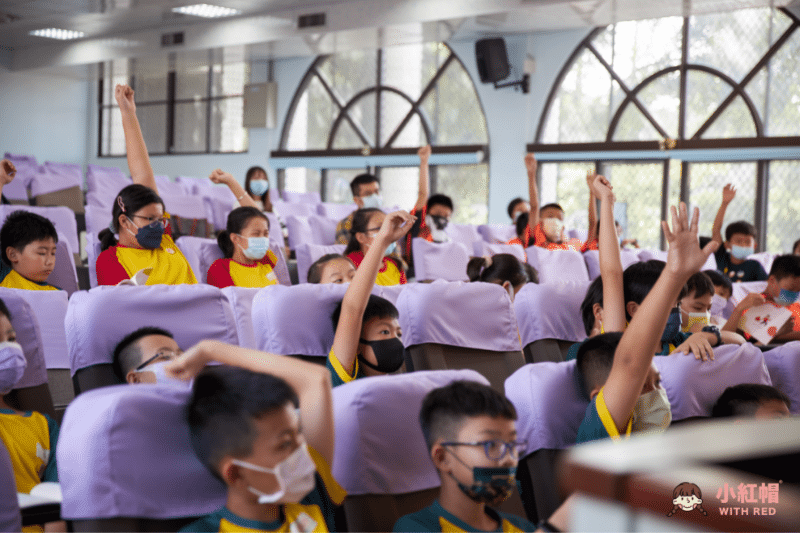
What has been the response to With Red?
In the beginning, it was very challenging. Not a lot of men or boys participated, but gradually we saw a huge shift. Our audience outreach on social media and even in person is now about 40% male, 60% female. We’ve received a lot of great feedback and encouragement from males. In our period education classes, we see boys are more active and willing to join compared to females and menstruators because they never had a chance to actually understand periods. The door has always been closed for them, so they’re very curious about it. We see a lot of discrimination disappear when there is more understanding. We see this especially in primary and secondary schools.
There is pushback, though. We constantly receive violent messages and comments, especially in the beginning. It was very scary and had a negative impact on us at first. We had a lot of discussions on how to face these challenges. We decided to cherish the messages because they were the perfect opportunity to understand people that have different opinions. We started to look into and interview people that disagreed with us. We want to break the echo chamber and see if we can clarify any misunderstandings to make the issues more inclusive.
What has your impact been like in Taiwan?
We’ve seen a huge change. We’re really lucky to have a very supportive government and partners. Different local governments are trying to implement period equity in local areas. We were contacted to try and implement a pioneer project in Taipei and Tainan.
This year, we’ve seen five other cities that are starting to develop these policies as well. We cooperated with 90 schools, helping to make tangible changes in the community. There are a lot of encouraging signs and changes that we’re seeing right now.
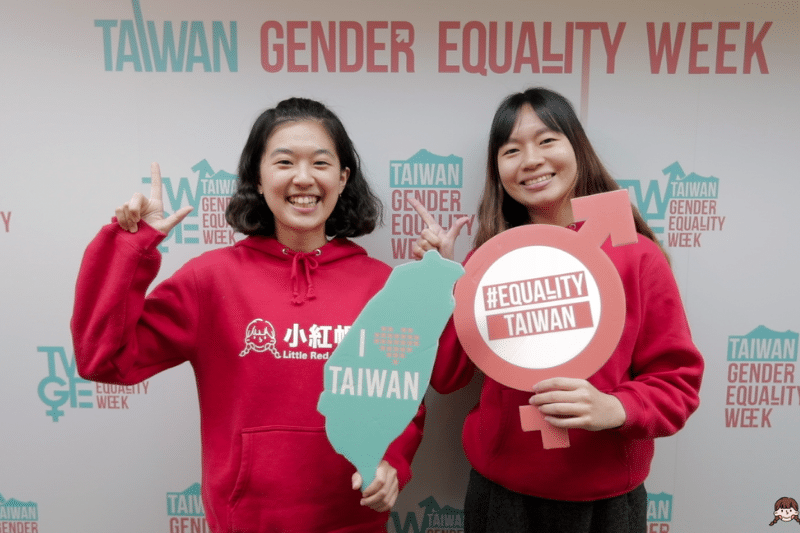
There is a lack of academic research regarding period poverty in Taiwan, how did you go about releasing your own papers on this?
It was challenging because there was no data in the beginning. We had two options – ignoring the issue and moving on, or using statistics from very small investigations. We chose the second option and knocked on the door of social workers and our beneficiaries.
Many social workers and organisations did not believe in the existence of period poverty. A lot of beneficiaries told us they experienced this issue for a long time, but never knew they could ask for help. We realised we needed to collect more data to create a complete picture of period poverty in Taiwan.
Congratulations on winning the Diana Legacy Award, how did it feel gaining more recognition for your work?
Thank you! It was definitely a surprise when we received the email, as the recipients are judged and nominated externally. It’s been a challenging journey, so it was very encouraging, and gave us a lot of confidence. It made us feel that we can continue to expand and team up with partners internationally, and that people will listen and work with us.
What advice do you have for people who find it difficult to discuss periods with their peers and children?
This is a daily issue for us. A lot of people come to us and tell us they feel uncomfortable talking about period related issues, or feel like it isn’t allowed. We tell them that it is something as natural as sweating, growing up, and going through puberty. These are all things we cannot change. The period is one of the most powerful and amazing biological processes that only a few species on this planet can experience in their lifetime.
It can be very powerful but that doesn’t mean it’s not something you struggle with. If people still find it very difficult to talk about it, we ask them to share with us their experiences without saying the word period. Then gradually they realise that it’s not so difficult to talk about.
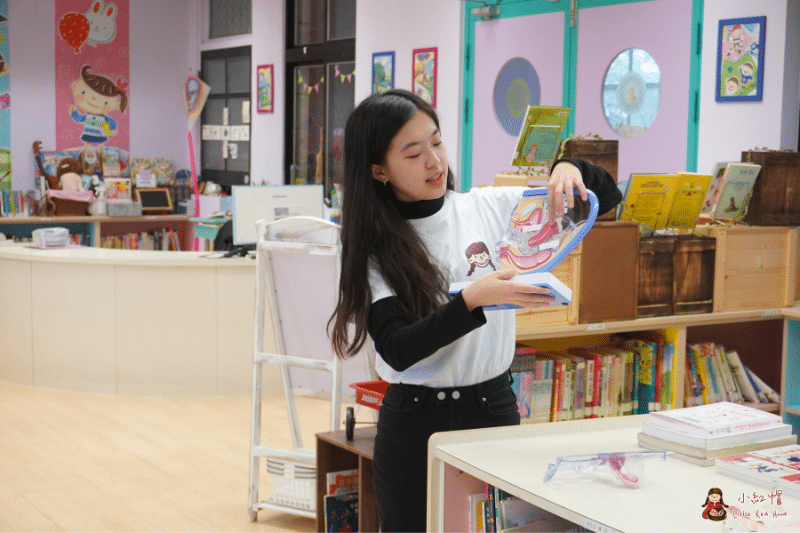
What does the future look like for With Red?
In the near future, we want to make sure that all our current services will continue to run and cover more of Taiwan. We don’t want to expand our organisation internationally but we do want to cooperate with other local organisations as mentors or partners. At the moment, we want to ensure that the educational scheme we’re currently implementing in schools will be compulsory to make sure all the students have access, regardless of their social or economic status. We want to publish academic papers, so people who are interested in joining this movement have enough data to start from.
What is With Red’s ultimate goal?
Since the first day I founded With Red, we’ve been trying to reach its end. We always say that we don’t want to be a sustainable organisation – the reason we exist is because the issue exists. We want to solve the issue as soon as possible. Once everybody can rightfully be their true selves we can close up this organisation. With all the experience we’ve gained through this journey, we want to solve other problems that still exist in the world.
How can we get involved with your work?
You can join the movement by understanding periods and discussing them more. Donations are also very helpful because that’s where most of our funding comes from. If you’re an educational institute, we can work with you to create and implement courses or programmes. If you’re a business worker or if you are an entrepreneur, then you can cooperate with us to promote equity. If you’re a policymaker, you can implement period equity in your daily policy. That can make a lot of changes to your local community.
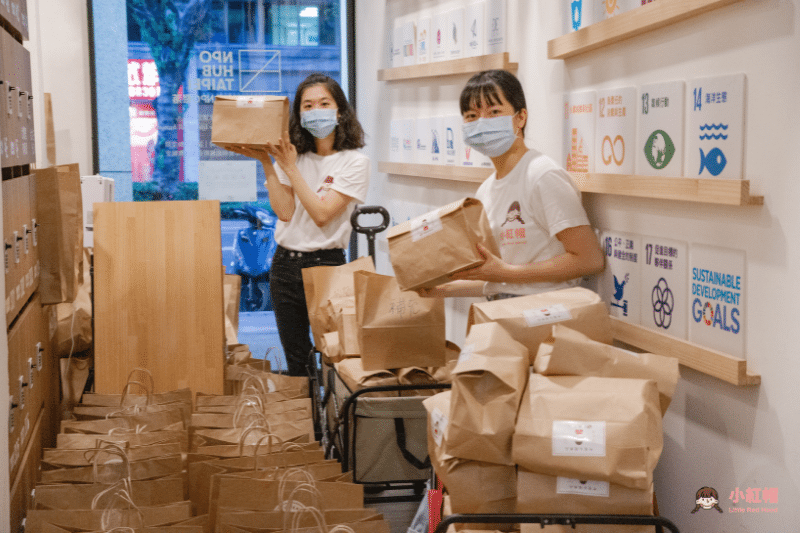
Related Articles
LUÜNA: Tackling Stigma, Shame & Silence Around Periods Across Asia
